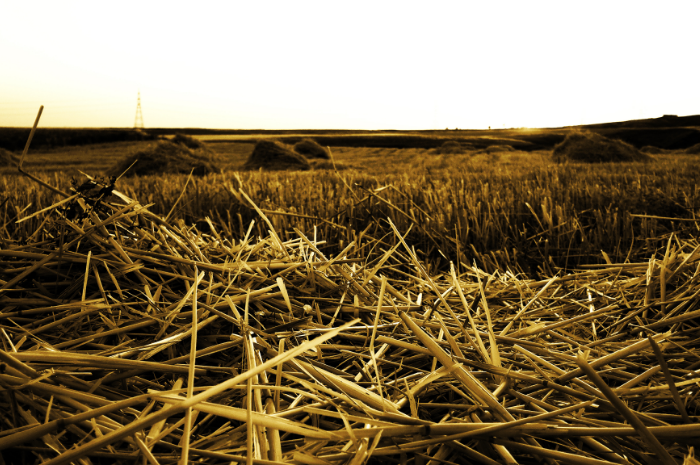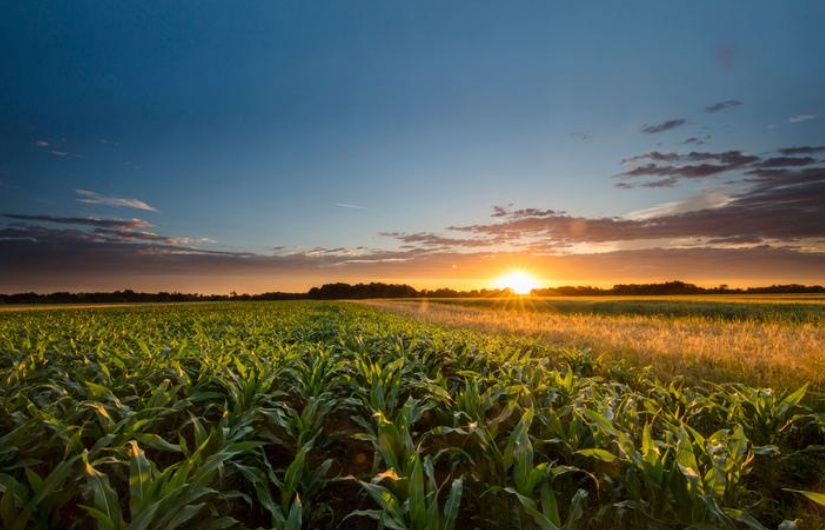Today, we live in a country where less than 2% of the population provides food, fiber, and fuel for the entire United States population. There are so few people in today’s world who are actually on the front lines of agriculture every day. One hundred years ago, around 40% of Americans were considered farmers. At that time, I have to imagine that the vast majority of the country had an understanding and a respect for the food they ate, the land they farmed and the economic prosperity that agriculture had recently brought to the nation.
The Disconnect
In my observations, it appears Americans today are finding themselves further and further removed from farms, physically, emotionally and theoretically. As a result of this growing disconnect, it is becoming all too common for misinformation surrounding agricultural practices to circulate and consumers to become misinformed. As a farmer, it’s often frustrating to read and hear things about farming practices that just plain aren’t true. I believe the reason it’s so difficult to find good, reliable, accurate information about agriculture is because of our growing disconnect between the people who farm and the people who don’t.
Combine that with the fact that we are now less than 2% of the population, and it becomes a potent recipe for misinformation and under representation.
My Farming Operation and Reality
The first thing I believe is essential to point out, is that my family and I still live where we farm. My children swim in the lakes by our farm. My family drinks the water from the farm. I breathe the air where I farm. My family makes its livelihood from the soil we cultivate, AND we understand if we don’t take care of our local natural resources, my family will be directly affected. Because of that, we take tremendous pride in caring for the land, water, and air.
There are significant differences when it comes to reading about theoretical conservation practices, and actually implementing them on the farm. To test and introduce a new practice on my farm, it can often be costly in one way or another. Whether the expense comes from a machinery purchase or upgrades, additional inputs, or simply from a loss of yield, many times we are financially limited when it comes to new practices. That doesn’t mean we aren’t constantly evolving and looking to be better at everything we do. It means change can take time as we test new practices because changes have to be economically proven for our family farm. Remember, we only have one chance each year to test new things, and farms have to be profitable, or else they disappear.
On the flip side, I firmly believe it’s imperative for farmers to listen to consumer concerns and understand why they may feel certain ways. Most consumers have very valid concerns and merely want to be comforted about current agricultural practices. They are curious to know exactly how we are taking care of our natural resources while also providing affordable, safe food for the planet. When I’m confronted about GMOs being harmful, I ask the person specifically what their concern is, and I explain to them how genetically engineered seed allows me to be more economical on my farm, which actually allows me to be more environmentally friendly. When I’m confronted about drain tile harming our state’s water quality, I explain to them how and why I use drain tile on my farm, and then I explain how it helps prevent soil erosion and increases nutrient holding capacity in the soil. The alternatives to drain tile are often much more harmful than proper drainage.
The Opportunity
Arguing with someone is not how to properly communicate, nor will it influence change and understanding. Teaching people how and why we do certain things on our farms is how we cross the bridge with consumers and help them understand who we are as people, business owners, and producers.
We (farmers) have a difficult road ahead of us when it comes to telling people our stories. Luckily, people are more willing to listen now than they have been in many years. Food is trendy. There’s a massive movement in this country to “know your farmers.” With information so readily available and conversations so easy to participate in, we now have a huge opportunity in front of us to influence the discussion and talk with people who are excited to listen and learn about agriculture. Our industry needs positive voices now more than ever, and people are willing to listen. If you love agriculture, I urge you to find whatever way fits you and become a positive voice for the industry. For those who are not farmers, and you have questions, I encourage you to connect with a farmer firsthand and listen and learn. I bet they will be happy to have a conversation with you!
We all want healthy water, soil, air, and food. Let’s remember, we’re all in this together!
See Zach's latest videos on his YouTube channel by clicking here.
For more information on the MN Millennial Farmer, please see our related blog posts below:


